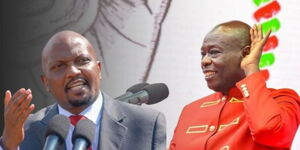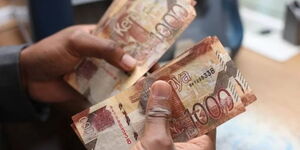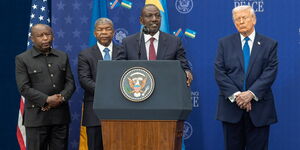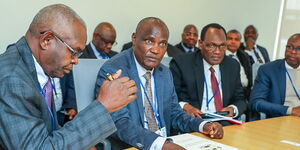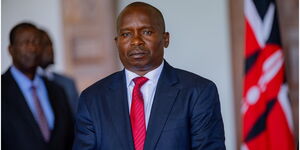Moody’s, a global rating agency based in New York, USA, downgraded Kenya’s long-term foreign-currency and local-currency issuer ratings from B2 to B3 on Friday, May 12.
The new ranking of B3 puts Kenya below Tanzania, which is rated B2. Moody's assigns its B3 rating for “speculative obligations and subject to high credit risk, while B2 is given to a prospective borrower able to meet its financial commitments but may be left highly exposed to adverse economic conditions.
In a statement seen by Kenyans.co.ke, the rating agency noted that the government’s inability to finance its liabilities was a contributing factor.
“Moody's Investors Service (Moody's) has today downgraded the Government of Kenya's (Kenya) long-term foreign-currency and local-currency issuer ratings and senior unsecured debt ratings to B3 and placed the ratings on review for downgrade.
“Prior to this rating action, Kenya's ratings were B2 and the outlook was negative. The rating downgrade is driven by an increase in government liquidity risks,” read the statement in part.
Moody's also warned the government about future actions that can lead to a further downgrade.
“Continued weak demand for domestic securities, or a significant increase in domestic borrowing costs to meet net domestic financing targets, would weaken the government's capacity to service debt and increase the risk of further credit deterioration,” it stated.
Moody’s considered that local investors had shown a lack of appetite for Kenya’s treasury bonds in the past few months.
"Domestic funding conditions have deteriorated considerably over the past two months, with very low net domestic issuance contributing to financing shortfalls and delays in government spending," it added.
It indicated that government financing conditions in the domestic market deteriorated significantly since early March 2023, with weaker demand for government securities resulting in shortfalls in net domestic financing.
Demand for Treasury bills also shifted toward the shortest-maturity Treasury bills, the 91-day bill. Demand for longer-dated bonds, Moody's stated, weakened, with very low demand at recent auctions, including a planned re-opening of a 15-year government bond which was cancelled in April 2023.
"Because of the weak demand for government securities, the government has fallen behind its net domestic financing target for the fiscal year ending June 30, 2023 (fiscal year 2023).
"This is having a significant impact on Kenya's fiscal accounts; tighter domestic financing conditions contributed to the government's delay of some salary payments in March, ongoing delays in transfers to county governments, and to the stock of government arrears," the financial institution stated.
Expectations
Kenya was, nonetheless, assured that some factors affecting the domestic market in recent months would ease, increasing appetite for domestic issuance.
Loans from the World Bank and the International Monetary Fund (IMF) would support increased government spending, including clearing arrears.
"While external financing is anchored by an IMF program and strong support from multilateral development banks, it is also contingent on the government's ability to deliver on fiscal consolidation.
"Without access to international bond markets to refinance upcoming external amortizations, Moody's expects Kenya to rely primarily on concessional financing from multilateral financial institutions, along with commercial syndicated loans and borrowing from regional development banks, to meet its external financing needs," Moodys added.
Moody’s is among the world's Big Three credit rating agencies, alongside Standard & Poor’s (S&P) and Fitch.
In April 2023, the government was unable to pay civil servants salaries, leading to a public outcry by the thousands of staff members affected.
On April 8, David Ndii, President William Ruto’s chief economic adviser, defended the government’s move to postpone payment of salary payments.
“When maturities bunch up, or revenue falls short, or markets shift, something has to give. Salaries or default? Take your pick,” Ndii asserted.


